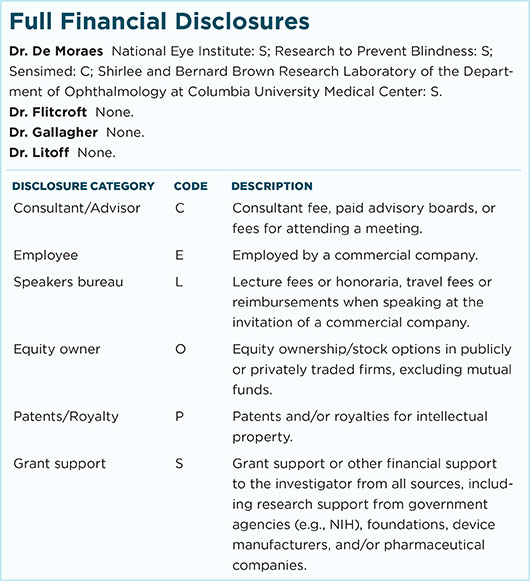Download PDF
Would it be safe and effective to relocate routine cataract surgeries from an outpatient surgery center to an office procedure room? Definitely so, according to a large study of Kaiser Permanente patients in Colorado.1
Good outcomes in more than 21,000 cases. The retrospective review of more than 21,000 consecutive cases (13,507 patients) in the HMO’s Denver metropolitan area found good visual outcomes, without greater risk of adverse events, when the surgeries were performed in a minor procedure room (MPR).
“Overall vision outcomes were excellent, with mean postoperative best-corrected visual acuity of 20/28 Snellen. Surgical reintervention was required in only 0.6% and 0.7% of patients at 3 and 6 months postoperatively, respectively,” the authors wrote. There were no cases of endophthalmitis, nor were there any intraoperative complications necessitating transfer to the hospital.
Efficient for surgeon, comfortable for patient. “What I’ve found is that it’s a much more efficient setting. I think it’s safer, faster, and a better experience for the patient,” said coauthor David Litoff, MD, a Kaiser Permanente ophthalmologist in Lafayette, Colo.
The 15 cataract surgeons at the 3 Kaiser Permanente Colorado medical offices in the study began transitioning to office-based surgery in 2006. By 2015, more than 95% of their cataract procedures were performed in an MPR. The MPR staff typically consists of a surgical technician and 2 registered nurses certified in advanced cardiac life support (1 circulating nurse and 1 monitoring/charting nurse). No anesthesiologist is present, and no intravenous lines or injections are routinely used.
“We found that when we got the anesthesiologist out of the equation it was a little easier for the patient to have their procedure,” Dr. Litoff said. “We weren’t sticking the patients with any needles, we weren’t starting any IVs, and we weren’t starving them. They could have breakfast or a snack right before their surgery.”
But sometimes more is needed. The Kaiser Permanente surgeons have found that in a small number of cases—probably under 1%—a hospital operating room and IV sedation are required because of particularly complex cataract surgeries or severe comorbidities. “So office-based surgery is not for every single case, but I would say that in the vast majority of cases with an experienced cataract surgeon, you can do it,” Dr. Litoff said.
—Linda Roach
___________________________
1 Ianchulev T et al. Ophthalmology. 2016;123(4):723-728.
___________________________
Relevant financial disclosures: Dr. Litoff—None.
For full disclosures and disclosure key, see below.

More from this month’s News in Review